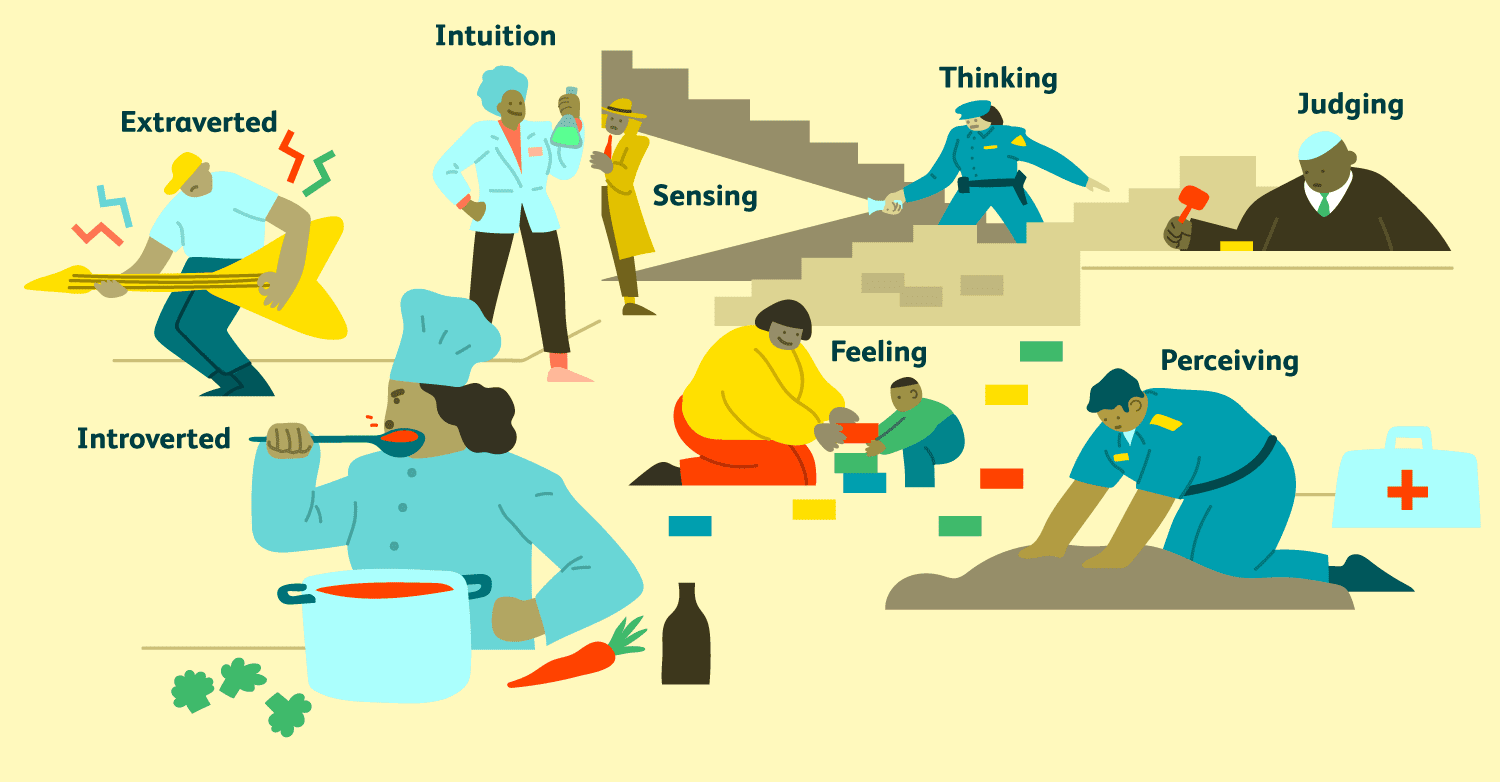
FAQ About Myers-Briggs Personality Type Test

Can the Myers-Briggs test help me understand my strengths and weaknesses?
Yes, the Myers-Briggs Type Indicator (MBTI) can provide insights into your personality preferences, which can in turn help you understand your strengths and weaknesses.
By identifying your MBTI type, you gain awareness of your natural inclinations and preferences in areas such as communication, decision-making, problem-solving, and interaction with others. This self-awareness can be valuable in recognizing and harnessing your strengths.
For example, if you have a preference for extraversion (E), you might thrive in social settings, enjoy collaboration, and excel in roles that involve interpersonal interaction. If you lean towards introversion (I), you may possess strengths in focused work, introspection, and independent problem-solving.
Additionally, understanding your preferences across other dimensions like sensing (S) vs. intuition (N), thinking (T) vs. feeling (F), and judging (J) vs. perceiving (P) can shed light on how you process information, make decisions, and approach tasks or projects.
By recognizing your strengths based on your MBTI type, you can leverage them to your advantage, pursue activities and careers that align with your preferences, and find strategies to excel in areas that come more naturally to you.
Similarly, the MBTI can help you identify potential areas of development or weaknesses. For instance, if you have a strong preference for thinking (T), you may benefit from consciously developing your emotional intelligence and considering the impact of feelings and emotions on yourself and others.
It's important to note that the MBTI is just one tool among many for understanding strengths and weaknesses. Other factors such as skills, experiences, personal values, and individual growth also contribute to shaping your strengths and areas for improvement.
Remember that while the MBTI can offer insights, it's essential to approach self-reflection and personal development holistically, incorporating various perspectives and assessments to gain a comprehensive understanding of your strengths and weaknesses.
